Program
Paper search
Please click here to search for accepted ICASSP 2019 papers by Paper Number (as defined when the paper was submitted online), Author(s), Title, Abstract, Topic, and Session Presentation Time.
Multiple search terms may be used together to narrow the search as desired. Multiple items entered for a single search term (other than Paper Number, Topic, and Session Time) should be seperated by a space. You may choose whether all multiple search terms will be required or if any search term would produce the desired results. This selection is made from the pull-down menu next to the search field.
If the search returns only one match, then full details will be displayed for that match. If more than one match is returned, then all of the matching records will be listed with checkboxes beside each result. To add papers from a search which has multiple matches, select the checkbox(es) next to the paper(s) you wish to add to your custom schedule, then click the "Add selected papers" button. If the search returns more than one match, clicking on the "View" button next to a match will display the full details for the selected paper.
If a search returns more than 30 matches, you will be given the opportunity to go back to the search fields page to refine your search terms, or you may choose to display all matched records.
Note that searches which result in many matches may take a long time to display.
Plenary Speakers
Sir David John Spiegelhalter

Understanding Uncertainty
University of Cambridge, UK
Tuesday 14th May 2019 (11:00-12:00)
Title:
“Handling Uncertainty”
Corinna Cortes
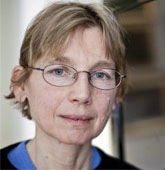
Machine Learning at Google
Tuesday 14th May 2019 (16:00-17:00)
Mischa Dohler

Internet of Skills – Where 5G, Robotics and AI Meet
Wednesday 15th May 2019 (11.00-12.00)
John R. Treichler

The 2018 Norbert Wiener Society Award
Applied Signal Technology Inc., US
Thursday 16th May 2019 (10:30-11:30)
Hermann Ney

40 years of automatic speech recognition: from statistical decision theory to deep learning
Friday 17th May 2019 (11:00-12:00)
When research on automatic speech recognition (ASR) started, the data-driven or statistical approach was identified with Bayes decision rule, Gaussian models, hidden Markov models and the expectation-maximization algorithm. Today most ASR papers focus on deep neural networks and deep learning, along with many refinements described by acronyms like CNN, RNN, LSTM-RNN, etc. Although the principles of neural networks have been known for several decades, it was only a few years ago that neural networks resulted in clear improvements over competing techniques and became the mainstream in ASR.
Thus we are faced with the question of how the realization of the data-driven approach has changed over time. This talk will re-visit the key components of the data-driven approach to ASR and discuss how they were affected by the deep learning revolution: 1) the performance measure and the associated decision rule that generates the recognition result; 2) the probabilistic models like acoustic and language models that are used in the decision rule to capture the dependencies between the speech signal and the word string hypotheses; 3) the training criterion and optimization strategy that are employed to learn the free parameters of the probabilistic models. The talk will discuss experimental results to show how deep learning in particular improved the acoustic and language models of the data-driven approach.
Tutorials
Tutorial proposals have now been accepted, especially those related to the theme of the conference and to new and emerging topics.
Tutorials will have a duration of 3 hours and will take place at the conference venue on Sunday and Monday, i.e., May 12 and 13, 2019.
Accepted Tutorial Sessions
| Tutorial Details | Tutorial Title | Schedule |
|---|---|---|
| Personalising Sound Over Loudspeakers | Sun PM | |
| Data augmentation techniques for deep learning | Sun PM | |
| Unlocking new Dimensions in Radio-based Positioning “5G Localization” | Sun PM | |
| Inverse problems in image restoration: from basic principles to current deep-learning trends | Sun PM | |
| Quantum Communications : Signal Processing meets Entanglement | Mon AM | |
| Signal processing for vehicular systems | Mon AM | |
| Cross-Modal Music Retrieval and Applications | Mon AM | |
| Learning Nonlinear and Dynamic Connectivity and Processes over Graphs | Mon AM | |
| Detection and Classification of Acoustic Scenes and Events | Mon PM | |
| Sketching Tools for Big Data Signal Processing | Mon PM | |
| Signal Processing and Beyond Using Deep Generative Models | Mon PM |
Tutorials - chair
Patrick Naylor
Imperial College London, UK
Dave Bull
University of Bristol, UK
Mark Plumbley
University of Surrey, UK
Awards at ICASSP 2019
This year, we have awarded, 12 Best Student Paper Awards, 12 Outstanding Reviewer Awards and 4 Education Innovation Awards.

All award certificates were designed by Vladimir Vanja Vlacina
Best Student Paper Awards
| Paper | Title of the paper | Student name | Institution | Award sponsored by |
|---|---|---|---|---|
| 1814 | FEEDFORWARD SPATIAL ACTIVE NOISE CONTROL BASED ON KERNEL INTERPOLATION OF SOUND FIELD | Hayato Ito | The University of Tokyo, Japan | Hitachi |
| 1876 | IDENTIFYING STRUCTURAL BRAIN NETWORKS FROM FUNCTIONAL CONNECTIVITY: A NETWORK DECONVOLUTION APPROACH | Yang Li | University of Rochester, USA | IEEE |
| 2077 | CONVERGENCE BOUNDS FOR COMPRESSED GRADIENT METHODS WITH MEMORY BASED ERROR COMPENSATION | Sarit Khirirat | Royal Institute of Technology, KTH, Sweden | Hitachi |
| 2082 | HIGHER-ORDER NONNEGATIVE CANDECOMP/PARAFAC TENSOR DECOMPOSITION USING PROXIMAL ALGORITHM | Deqing Wang | Dalian University of Technology, China, and University of Jyväskylä, Finland |
IEEE |
| 2439 | A VARIATIONAL ADAPTIVE POPULATION IMPORTANCE SAMPLER | Yousef El-Laham | SUNY at Stony Brook, USA | IEEE |
| 2731 | BLHUC: BAYESIAN LEARNING OF HIDDEN UNIT CONTRIBUTIONS FOR DEEP NEURAL NETWORK SPEAKER ADAPTATION | Xurong Xie | Chinese University of Hong Kong, China | Mitsubishi |
| 3168 | PARAMETER UNCERTAINTY FOR END-TO-END SPEECH RECOGNITION | Stefan Braun | University of Zurich and ETH Zurich, Switzerland | IBM |
| 3249 | STATISTICAL RANK SELECTION FOR INCOMPLETE LOW-RANK MATRICES | Rui Zhang | Georgia Institute of Technology, USA | Hitachi |
| 4538 | RANDOMIZED TENSOR RING DECOMPOSITION AND ITS APPLICATION TO LARGE-SCALE DATA RECONSTRUCTION | Longhao Yuan | Saitama Institute of Technology andRIKEN Advanced Intelligence Project, Japan | IEEE |
| 4575 | STOCHASTIC ADAPTIVE NEURAL ARCHITECTURE SEARCH FOR KEYWORD SPOTTING | Tom Véniat | Sorbonne Université, France | IEEE |
| 4608 | DEEP SPLINE NETWORKS WITH CONTROL OF LIPSCHITZ REGULARITY | Shayan Aziznejad | École Polytechnique Fédérale de Lausanne, Switzerland | Amazon |
| 5257 | ONE-BIT UNLIMITED SAMPLING | Olga Graf | Technical University of Munich, Germany | Analog |
Outstanding Reviewer Awards
| Reviewer | Affiliation | Country |
|---|---|---|
| Anh-Huy Phan | Skolkovo Institute of Science and Technology | Russia |
| Antoine Liutkus | INRIA | France |
| Danilo Comminello | La Sapienca University | Italy |
| Dirk Slock | EURECOM | France |
| Ivan Bajic | Simon Fraser University | Canada |
| Konstantinos Slavakis | SUNY at Buffalo | USA |
| Palghat Vaidyanathan | California Institute of Technology | USA |
| Tirza Routtenberg | Ben Gurion University of the Negev | Israel |
| Waheed Bajwa | Rutgers University | USA |
| Woon-Seng Gan | Nanyang Technological University | Singapore |
| Xinze Guan | eBay | USA |
| Yuantao Gu | Tsinghua University | China |
Education Innovation Awards
| Anubha Gupta and Akanksha Farswan | For groundbreaking achievements in teaching practices for Signal Processing Education | IIIT-Delhi, India |
| James H. McClellan and Gregory A. Krudysz | For groundbreaking contributions to Signal Processing Education | Georgia Institute of Technology, USA |
| Roberto Togneri and Sally Male | For ground-breaking contributions to teaching Signals and Systems | University of Western Australia |
| Zhe Li, Xiangyu Chen, Wei Deng, Wenjiang Pei, and Yili Xia | For groundbreaking achievements in technology driven Signal Processing Education | Southeast University, China |
ETON-Primers (Expert-no-Nonexpert) Short Tutorial
Free Attendance
Wednesday 15 May, 2019 (12:15 - 13:15)
| ETON-Primer | Presenter | Affiliation | Tutorial | Location |
|---|---|---|---|---|
| 1 | Nuria González Prelcic | University of Vigo, Spain University of Texas at Austin, USA |
Signal Processing for 5G Communications | Syndicate 3 |
| 2 | Sergios Theodoridis | University of Athens, Greece | Challenges in Deep Learning | Syndicate 4 |
| 3 | Urbashi Mitra | University of Southern California, USA | Sensing, Communication and Control: Opportunities for Signal Processing for Biological Systems | Syndicate 1 |
| 4 | Yun-Nung (Vivian) Chen | National Taiwan University, Taiwan | Learning for Language Generation & Understanding | Syndicate 2 |
Thursday, 16 May (11:45 - 12:45)
| ETON-Primer | Presenter | Affiliation | Tutorial | Location |
|---|---|---|---|---|
| 1 | DeLiang Wang | Ohio State University, USA | The Cocktail Party Problem: A Case Study in Deep Learning | Syndicate 3 |
| 2 | Georgios Giannakis | University of Minnesota, USA | Data and Network Sciences: SP Challenges and Opportunities | Syndicate 2 |
| 3 | Jose C Principe | University of Florida at Gainsville, USA | Understanding Dynamics of Deep Learning with Information Theory | Syndicate 4 |
| 4 | Mahesan Niranjan | University of Southampton, UK | Recent Developments in Machine Learning with a Focus on Communication Systems | Syndicate 1 |
Special sessions
The program for ICASSP 2019 will include Special Sessions that complement the traditional program with new and emerging topics of interest to the signal-processing community, especially those in line with our theme of Empowering Science and Technology for Humankind. The aim of a special session is to provide an overview of the state-of-the-art as well as to highlight current research directions and challenges in specific fields of signal processing.
Inquiries about Special Sessions can be sent to specialsessions@icassp2019.com and CCed to stephan.weiss@strath.ac.uk and sjg@eng.cam.ac.uk
Special Sessions, 2019
| Signal processing for body sensor networks | Anomaly Detection in Acoustic Signals, Images, Video, and Sensor Data Streams |
| Deep Learning for Medical Imaging | 3D Vision and Its Applications |
| Recent Advances in the Active Control of Sound | Nonlinear Inverse Problems and Matrix Factorization |
| Advanced Signal Processing for Non-intrusive Load Monitoring | Machine Learning for Multimedia Communications and Computing |
| Signal processing for multimedia security, privacy and trust | Wildlife Bioacoustics and Adaptive Signal Processing |
| Challenges and Perspectives in spike-based sensing and processing | Half a century of adaptive and statistical signal processing education |
| Traditional and Emerging Signal Processing Teaching Practices | Perceptually motivated signal processing: data, algorithms and evaluation |
| Signal and Image Processing for Environmental Monitoring and Protection | Learning Methods in Complex and Hypercomplex Domains |
| Artificial Intelligence based Human-Machine Conversation technology for Interactive Education | Deep Learning for Multimedia Forensics |
| Parahermitian Matrix Factorisations and their Applications | Signal Processing for Emerging Wireless Hardware Architectures |
| Signal Processing for Smart City Applications and the Internet of Things | Anomaly Detection and Intent Inference in Object Tracking |
| Cross-modal Semantic Segmentation, Search and Knowledge Discovery | Multimodal Representation Learning for Language Generation and Understanding |
| Advances in structured and constrained low-‐rank approximations | Emerging Methods for Multi-sensor Data Fusion and Tracking |
| Using AI and Signal Processing to empower human learning | Communications and Radar Transmission: Coexistence and Beyond |
| Robust Distributed Computing | AI for Sound: A Session Honoring Jan Larsen |
| Neural Networks for Signal Processing Applications | Image and Video Processing for Public Security Applications |
| Recent Advances in Signal Processing for Large-Scale Computational Imaging | Signal Processing for Sensing, Information Fusion, and Situational Awareness in Autonomous Systems |
| Statistical Signal Processing for Smart Grid Applications | Tensor-based machine learning for multi-dimensional signal processing |
| Signal Processing for Big Data | Machine Learning for Communications |
| Acoustic scene analysis and tracking for time-varying reverberant environments | Emerging Quantum Signal Processing Paradigms |
Special sessions - chair
Stephan Weiss
Electronic and Electrical Engineering
Simon Godsill
Signal Processing and Communications
IEEE Signal Processing Cup (SP Cup)
Monday, 13 May 2019 - 16:30-18:00 (Ocean View)
Finalist Teams
Winner: AGH
AGH University of Science and Technology
Supervisor: Jakub Gałka
Tutor: Szymon Woźniak
Students: Piotr Walas, Mateusz Guzik, Mieszko Fraś
Runner Up: Shout COOEE!
University of New South Wales
Supervisor: Vidhyasaharan Sethu
Students: Antoni Dimitriadis, Alvin Wong, Ethan Oo, Jennifer Jingyao, Prasanth Parasu, Qingbei Cheng, Hayden Ooi, Kevin Yu
2nd Runner Up: Idea!_ssu
The Signal Processing Cup (SP Cup) student competition, presented by the IEEE Signal Processing Society, gives students the opportunity to work together to solve real-life problems using signal processing methods. After students submit their work, three final teams are selected to present their work and compete for the grand prize at ICASSP 2019!
Interested in competing? See the competition guidelines below! The submission deadline is 28 February 2019.
While only the final three teams will be competing at ICASSP 2019, all are welcome to watch the students present their work during the final competition. Join us and come see the action!
IEEE Signal Processing Cup 2019:
Search & Rescue with Drone-Embedded Sound Source Localization
For full competition details, eligibility requirements, and team registration, visit the IEEE Signal Processing Society website.
The IEEE Signal Processing Society proudly announces the sixth edition of the Signal Processing Cup: an audio-based search and rescue challenge using drones.
The goal of this competition is for teams to build a system capable of localizing a sound source based on audio recordings made with a microphone array embedded in an unmanned aerial vehicle (UAV), also called drone. Teams will use their signal processing expertise to process the audio signals in ordered to extract relevant spatial cues to estimate the direction of arrival of a speech source. Key challenges are the large amount of noise present in the recordings due to the UAV's rotors and wind, and the dynamics of realistic flights, involving fast movements.
The competition will consist of two stages; an open competition that any eligible team can participate in and an invitation-only final competition. Teams participating in the open competition must submit their entries no later than February 28, 2019. The three teams with the highest performance in the open competition will be selected as finalists and will be invited to participate in the final competition. Finalists will be announced on March 20, 2019. The three teams invited to participate in the final competition will be judged at ICASSP 2019, which will be held May 12-17, 2019.
UAVs have been of increasing influence in recent years. Search and rescue scenarios where humans in emergency situations need to be quickly found in areas difficult to access constitute an important field of application for this technology. Drones have already been used in places like Haiti and the Philippines to map areas after a natural disaster, using high-resolution embedded cameras (see this recent United Nation report: http://tiny.cc/xmy0zy). On the other hand, whenever there is a lack of visual feedback due to bad lighting conditions (night, fog, etc.) or occlusions, audio signals could be of critical help to localize people in emergency. While sound source localization is a long-standing signal processing research topic, the unique challenges introduced by UAV search and rescue are at the heart of this IEEE signal processing cup edition. Detailed information about the competition can be found throughout this webpage.
To access data and ask technical questions, please enroll this project using the following steps:
- Go to piazza.com and click "Students Get Started"
- Search Schools: "IEEE SPS"
- Selected Term: "Other"
- Class 1: "SPCUP 2019: IEEE Signal Processing Cup 2019"
- Class Access Code: "spcup2019"
You'll then be able to ask questions either as public inquiries to the SP Cup 2019 community or via private messages to the organizers.
IEEE SPS Signal Processing Cup Website
Register: SP Cup 2019 Registration Page
Submission deadline: February 28, 2019
This competition is sponsored by MathWorks®.Student Career Luncheon
Student Career Luncheon
Thursday, 16 May 2019 - 11:30-14:30 (Auditorium 2)
Are you a student or new graduate ready to take the leap to building your career? Join us at the Student Career Luncheon at ICASSP 2019! Hosted by the IEEE Signal Processing Society, the Student Career Luncheon connects eligible students and graduates with industry representatives to explore job opportunities within their companies. Attendees have the chance to meet with representatives and learn about job openings, while recruiters can meet potential talent and conduct on-site interviews. Registration is free for students, but application and acceptance is required for attendance.
Is your company attending ICASSP and hoping to recruit new talent? Consider sponsoring the Student Career Luncheon for the opportunity to meet the bright, emerging minds launching their signal processing careers. Interested in learning more? Fill out the sponsor interest form!
Click here to submit your application to the Student Career Luncheon. You will receive your application decision approximately three weeks before the event.
Apply for the Student Career Luncheon now
Sponsors of the Student Career Luncheon





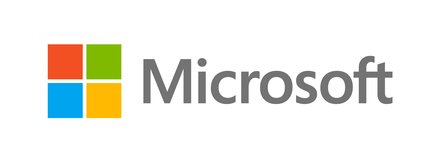

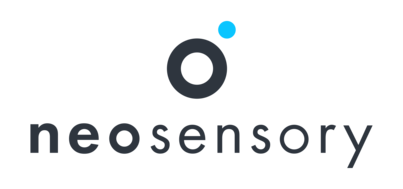
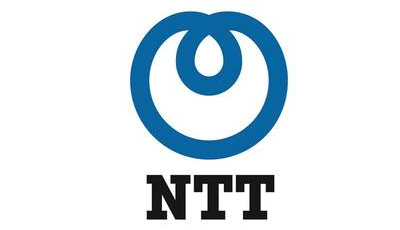





Young Professionals Development Workshop
Join the SPS Young Professionals and Present Your Science’s Melissa Marshall for a two-part workshop on how to create engaging, dynamic presentations that effectively communicate the impact of your work to a broader audience. During two sessions, you’ll learn how to use practical content strategies and visuals to transform your presentations, making your work more memorable throughout all areas of your career. Space is limited, so register now!
Price: $15/session, $25 for a two-session bundle
Monday, 13 May 2019, Session 1 - Powerful Presentations, 3:30-5:00 PM (Auditorium 2)
- Teach participants to enact an audience-centered speaking approach.
- Help participants understand which scientific details to emphasize in their presentation and which details to filter out.
- Equip participants with content strategies to engage their audience in the story of their science.
- Show participants an easy to use structure to give a short and engaging Elevator Pitch about their work.
Monday, 13 May 2019, Session 2 - Transforming Slide Design, 5:30-7:00 PM (Auditorium 2)
- Transform the way participants think about slides in a scientific presentation.
- Equip participants to understand and enact the assertion evidence slide design in their own talks to make their scientific presentations more understandable, memorable, and engaging.
- Teach practical strategies for improved "framing" slides such as title, agenda, and conclusion slide.
- Give improved techniques for pre-read and handout documents.
Want more information? Contact the SPS Young Professionals Subcommittee at sp-sc-yp@ieee.org!
Authors Best Practices and IEEE Author Tools
Authors Best Practices and IEEE Author Tools will take place on Friday 17, May from 12:00 pm to 3:00 pm. This informative workshop is designed for and targeted to new authors who need to quickly and successfully publish their work. The first half of this workshop will provide a comprehensive review of author best practices and development covering author ethics along with interactive case studies, preparation of your manuscript, application for funding and grants, avoiding bibliometric and citation manipulation, and submission and the peer review process, all while offering suggestions towards the best practices to a fast and successful publication. The second half of this workshop will be presentations about new and updated IEEE author tools covering the following: IEEE DataPort™, a new IEEE product and service in support of submitting data and code in an IEEE dedicated repository (with support from the Signal Processing Society); Code Ocean, a third-party repository to store and run algorithmic code, and the IEEE Author Center, which is now the premier tool covering everything an author needs to navigate through the author journey: from tools and templates, selecting a journal, choosing the correct copyright, posting pre- and post-publication, access to editorial and production tools, and finally, to article dissemination to IEEE Xplore™. Please join us for this informative workshop designed to assist new authors in the timely and successful publishing of their work.
Bill Colacchio, SPS Senior Manager, Publications & Education Strategy and Services, will moderate the event.
Show & Tell
ICASSP 2019 has the promotion of Signal Processing Innovation at the very core of its activities and thus cordially welcomes proposals for "show-and-tell" demonstration sessions (demos). These have been proven to serve both as a natural platform for researchers from academia and industry to demonstrate their groundbreaking prototypes, elucidate innovative signal processing solutions, or as a wider discussion forum.
The theme of ICASSP 2019 is "Empowering Science and Technology or Humankind", and the organisers of ICASSP 2019 encourage presentations of demos related to any of the technical areas within the merit of IEEE SPS, as summarised at IEEE ICASSP 2019 - Call for Papers
A successful demo proposal will be allocated space in the central Reception/Exhibition area and will run in parallel to the standard technical sessions. The full ICASSP program can be found at IEEE ICASSP 2019 - Conference Overview
The “show-and-tell” presenters will have at their disposal: a table, a board for a poster/banner, and an electrical power connection. It is the responsibility of the presenters to cater for any other equipment, shipping and delivery costs, and care of their exhibit items during the conference.
As a demonstrator, you will need to register for ICASSP, in order to be given a demonstrator's kit. Once at the conference site, please liaise with the local organisers regarding any practical issue, including set-up times and layout of your demonstration space.
The deadline for submission of proposals is March 18, 2019, while the decisions on the successful proposals for presentation will be made by March 25, 2019. To submit your proposal, please follow this link IEEE ICASSP 2019 - Show & Tell Proposal Submissions
To enquire about any issue related prior to your demo proposal, please contact the TC Chairs of ICASSP 2019 at SP19-TPChairs@lists.securecms.com
We very much look forward to welcoming you at ICASSP in Brighton, a venue where Signal Processing meets the needs of modern humankind.
Important dates
| March 18, 2019 | Submission of Show & Tell Proposals |
| March 25, 2019 | Notification of Show & Tell Proposals Acceptance |
Women in Signal Processing
Women in Signal Processing Panel Discussion:
From Grad-School to IEEE Fellow and Beyond
Wednesday, 15 May 2019 - 12:00-2:00 PM (Auditorium 2)
Join the IEEE Women in Signal Processing Committee for lunch followed by a panel discussion and Q&A with distinguished SPS members as they shed light on the IEEE Fellow elevation process, including how to start preparing years ahead before you may think you should. Panelists to be announced soon!
For any panel related questions, please contact Women in Signal Processing Committee Chair, Namrata Vaswani .
Add your name to the new Women in Signal Processing Directory and join the WISP mailing list! Visit the WISP website to learn more.
| Panel Moderator | Namrata Vaswani |
| Panelists | Isabel Trancoso |
|
| Panelists | Athina P. Petropulu |
|
| Panelists | Yonina Eldar |
|
| Panelists | Dilek Hakkani-Tür |
|
Sponsors of the Women in Signal Processing Luncheon


Student Grant Winners
IEEE Ganesh N. Ramaswamy Memorial Student Travel Grant
Sponsored by: IBM Corporation
Winner of the IEEE Ganesh N. Ramaswamy Memorial Student Grant:
David Snyder, Johns Hopkins University, USA
P3993: SPEAKER RECOGNITION FOR MULTI-SPEAKER CONVERSATIONS USING X-VECTORS
with Daniel Garcia-Romero, Gregory Sell, Alan McCree, Daniel Povey, and Sanjeev Khudanpur
Administered by the IEEE Signal Processing Society, the Ganesh N. Ramaswamy Memorial Student Travel Grant recognizes the student author(s) of an outstanding paper(s) on speaker and language recognition area accepted for publication in the proceedings of the IEEE International Conference on Acoustics, Speech, and Signal Processing (ICASSP).
IEEE Spoken Language Processing Student Travel Grant
Sponsored by: Xuedong Huang, Alex Acero and Hsiao-Wuen Hon
Winners of the IEEE Spoken Language Processing Student Travel Grant:
Stefan Braun, University of Zurich and ETH Zurich, Switzerland
P3168: Parameter Uncertainty for End-to-End Speech Recognition
with Shih-Chii Liu
Administered by the IEEE Signal Processing Society, the Spoken Language Processing Student Travel Grant program honors the student(s) of an outstanding paper(s) in spoken language processing area accepted for publication in a conference (IEEE International Conference on Acoustics, Speech and Signal Processing) or a workshop (IEEE Workshop on Automatic Speech Recognition and Understanding).
Young Professional Networking
Young Professional Networking Event
Tuesday, 14 May 2019 - 18:00 - 20:00
Brighton Music Hall
Join the IEEE Signal Processing Society Young Professionals after the conference sessions for a networking reception at Brighton Music Hall! Just steps away from the conference venue, Brighton Music Hall features daily live music from local legendary music talent. Enjoy pier-to-pier views of the sea through the venue's Victorian arches and unwind with your colleagues to discuss careers, entrepreneurship, and opportunities in a fun and casual setting.
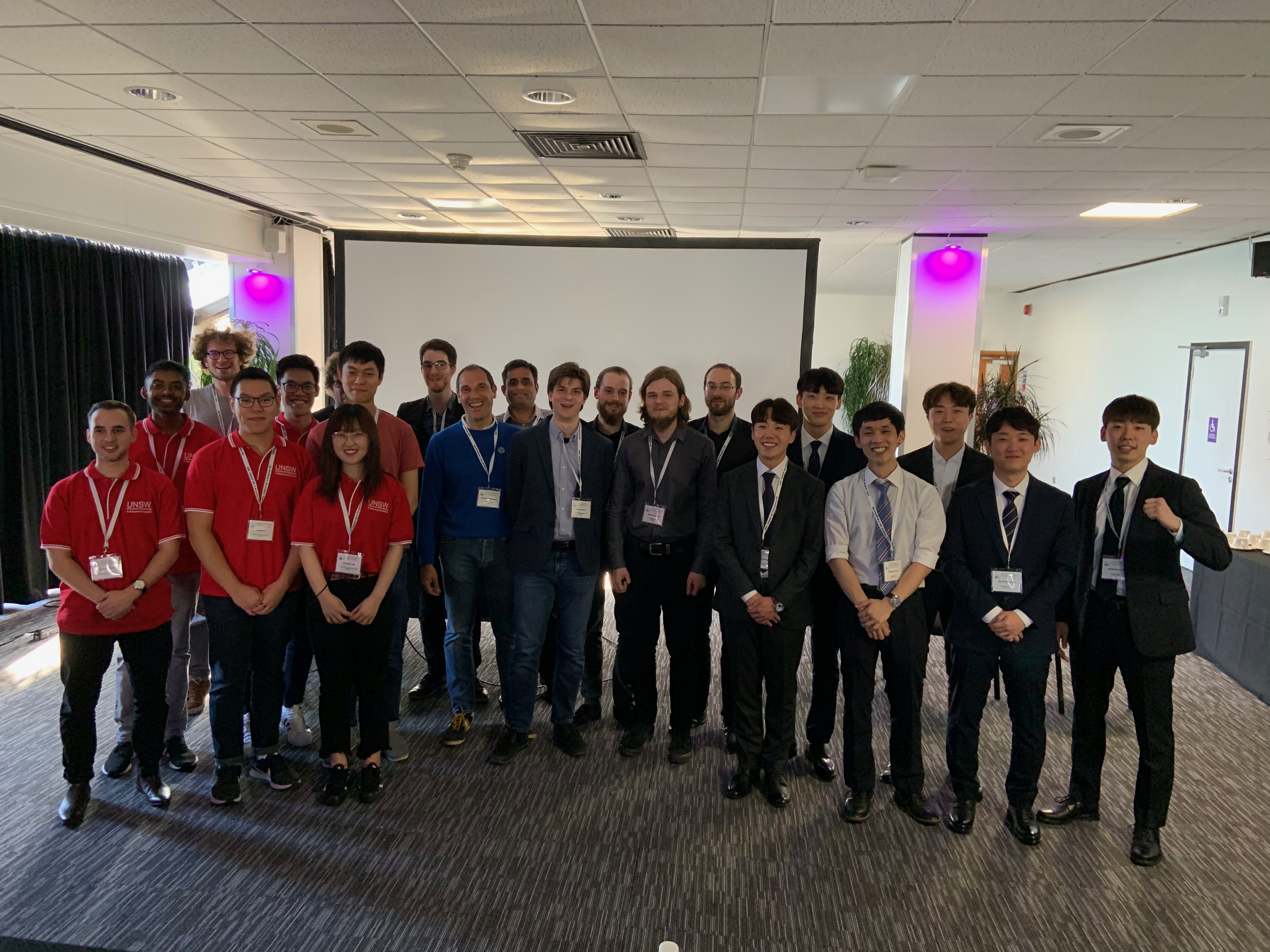
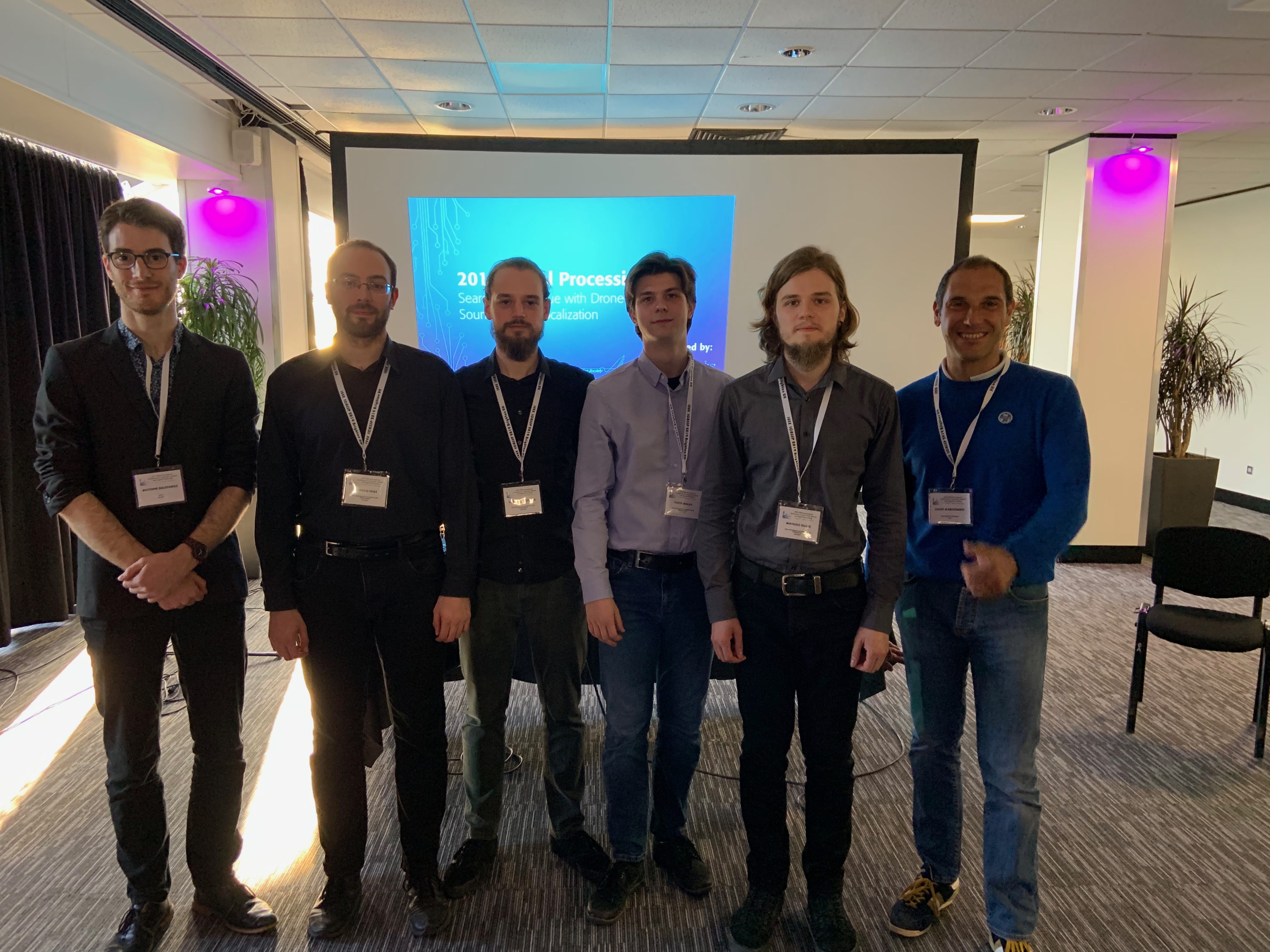
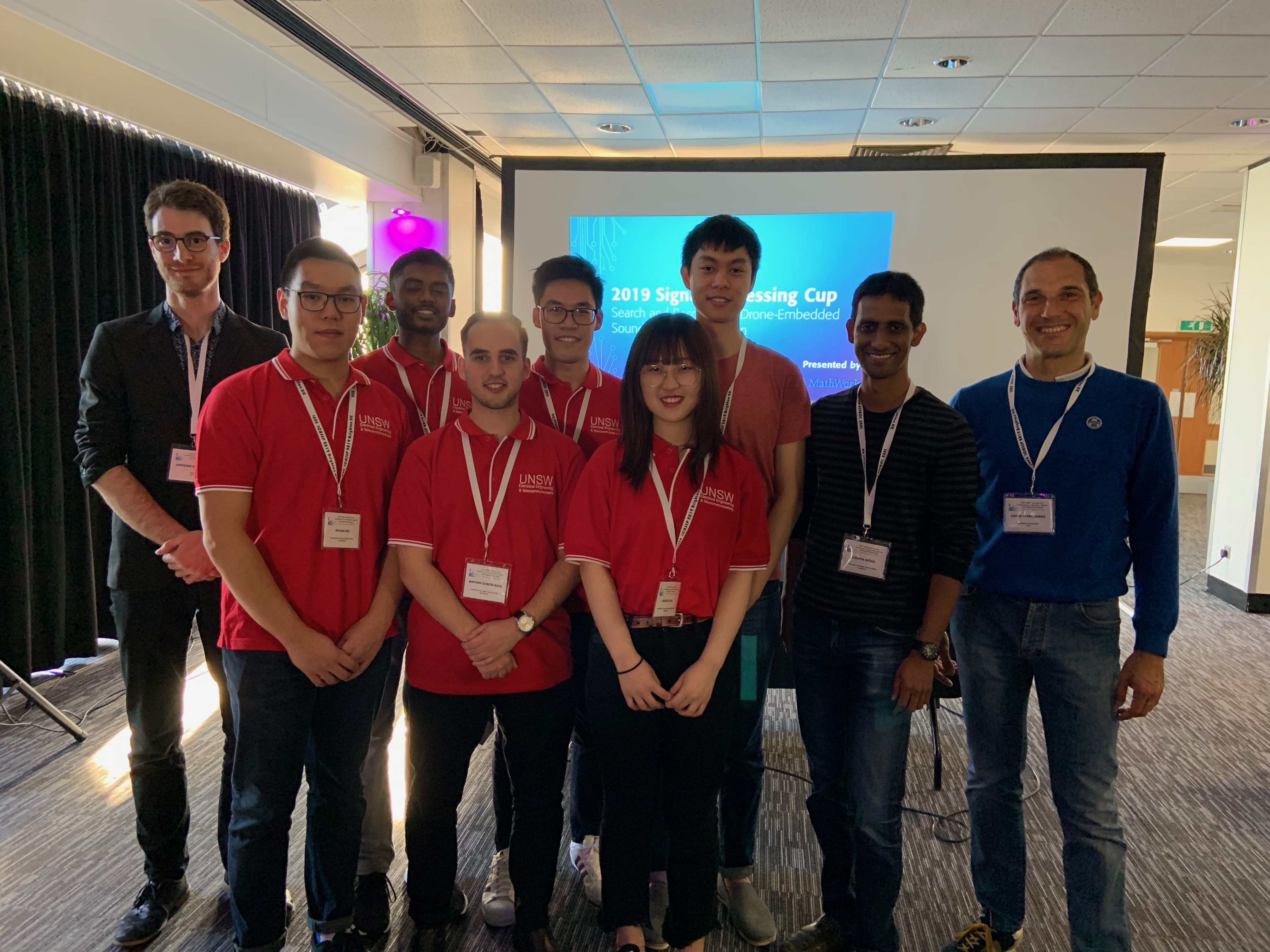
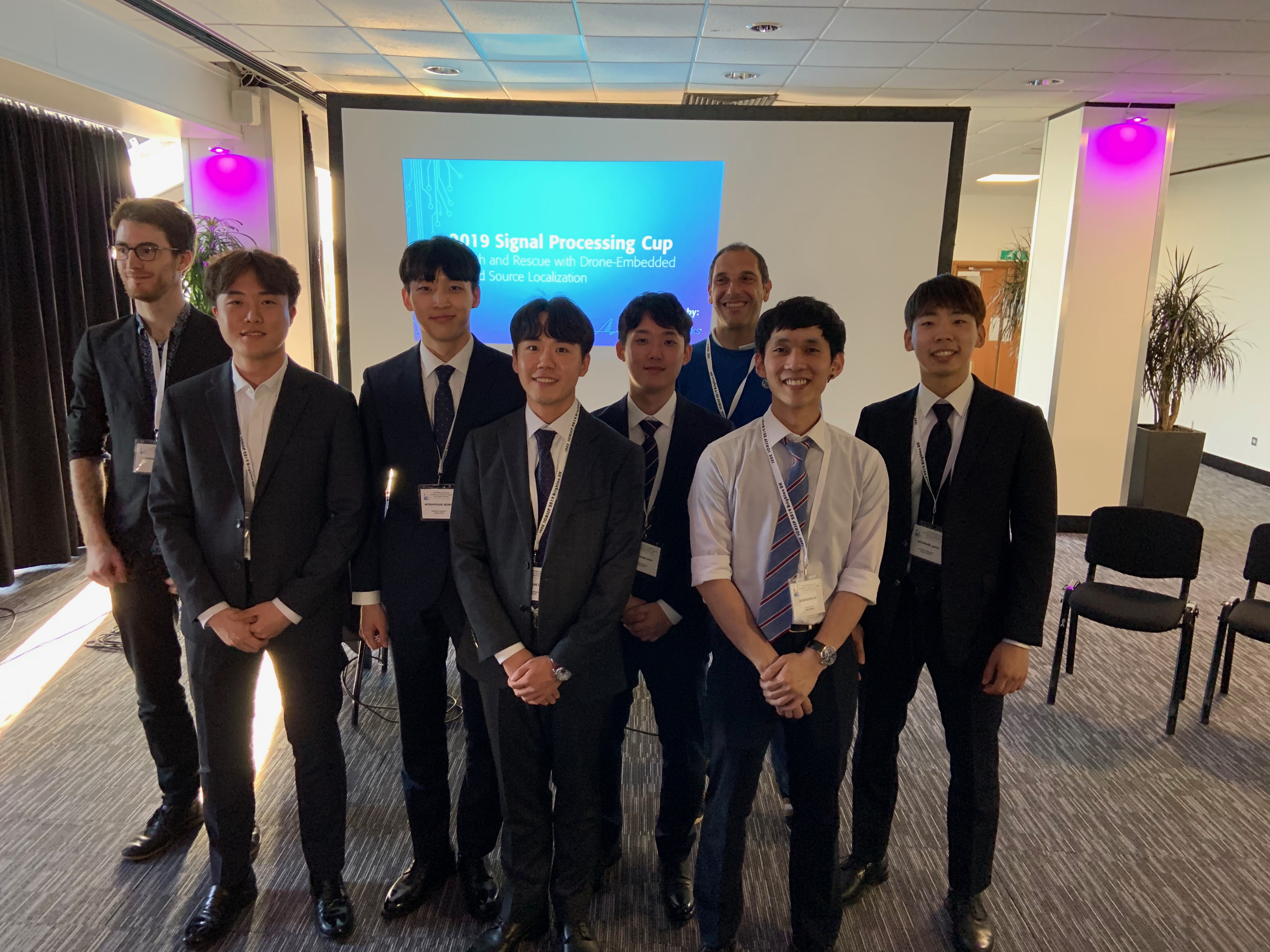
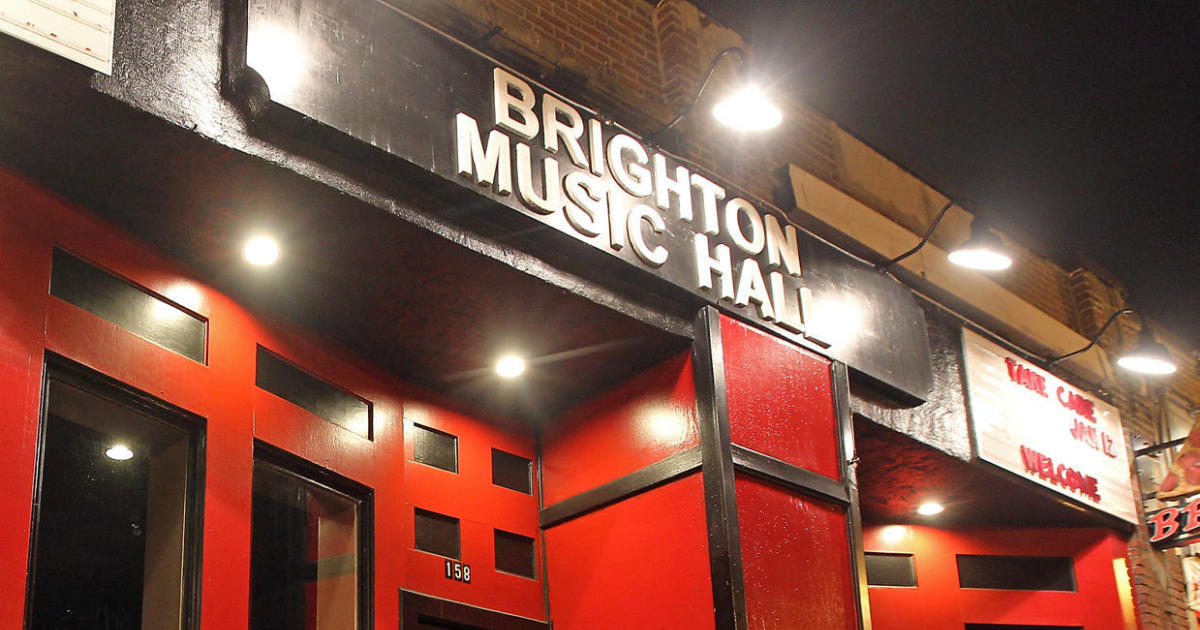
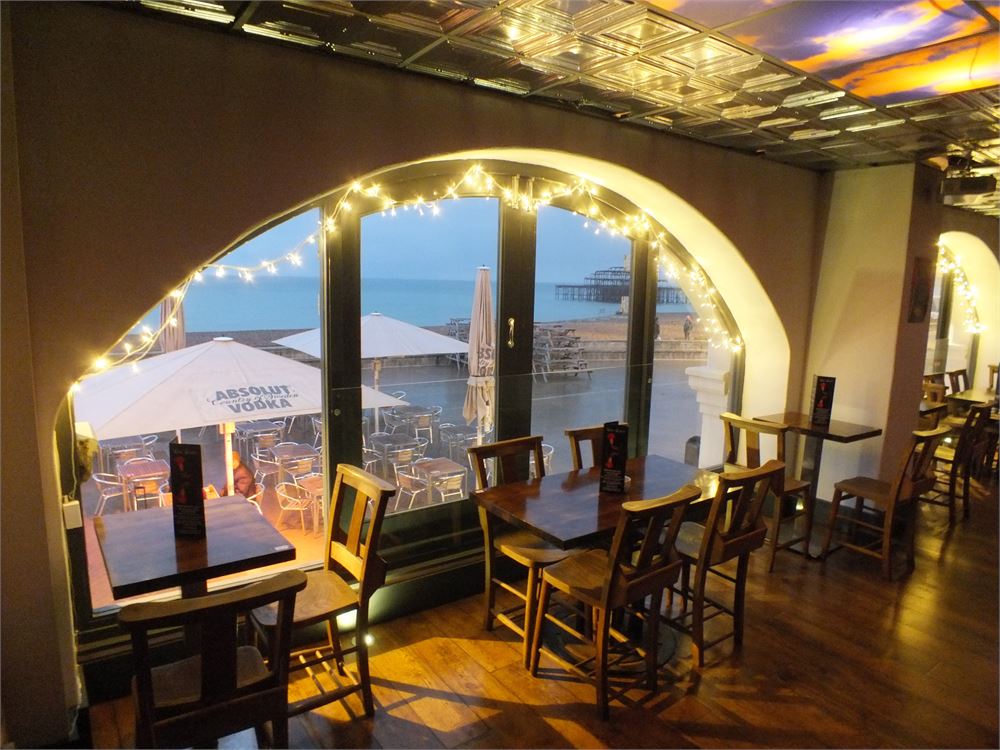

Social Events
Welcome Reception
Monday, 13 May 2019 - 18:00 - 22:00 (times to be confirmed)
Dresscode : Business Casual
You are kindly invited to kick off ICASSP 2019 in style at a special event for all delegates on Brighton Palace Pier. A listed Grade 11 building, at 1722 ft long Brighton Palace Pier is acknowledged as the finest pier ever built, combining traditional seaside with excitement and pace of the modern day. The Welcome Reception will be the first official event of the Conference and will give you the opportunity to meet the other participants during an informal networking evening. Join us for a drink and meet old and new friends, relax and enjoy a stylish yet casual and friendly evening. Welcome to Brighton!
ICASSP 2019 - Banquet
Wednesday, 15 May 2019 - (times to be confirmed)
Dresscode : Business Casual
We look forward to seeing you at the ICASSP 2019 Banquet hosted in the Empress Suite at The Grand Hotel. A historic Victorian seafront hotel in Brighton. Designed by John Whichcord Jr. and built in 1864, it was intended for members of the upper classes visiting the city and remains one of the Brighton's most expensive & exclusive hotels.
Join us at this amazing setting to celebrate the Conference and to continue to build on friendships. We will have drinks upon arrival, followed by a sit down dinner with entertainment - all this in one of the most beautiful and iconic sea view premises in Brighton.